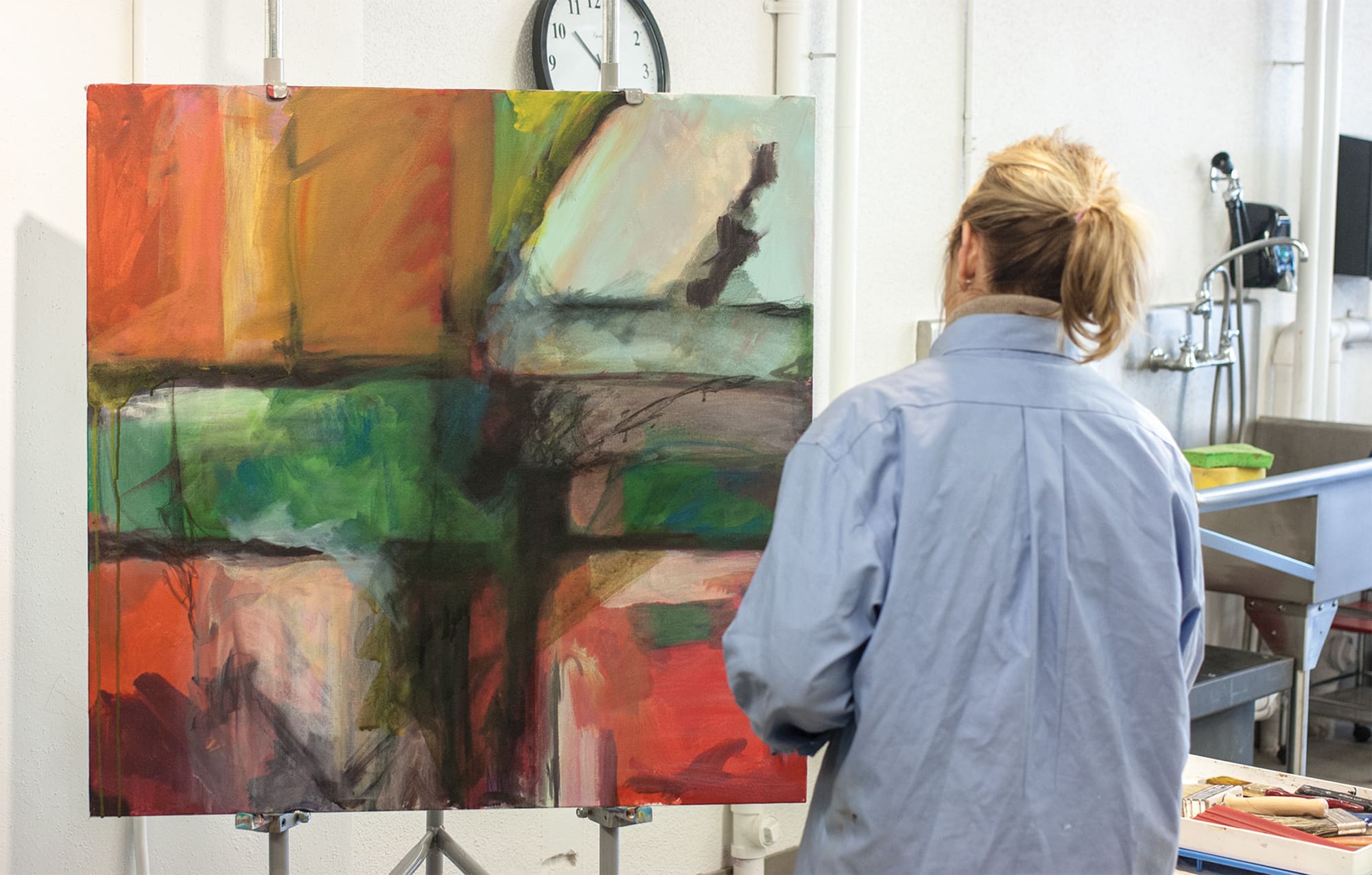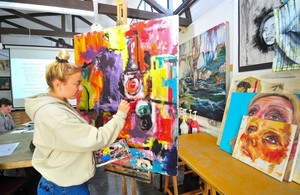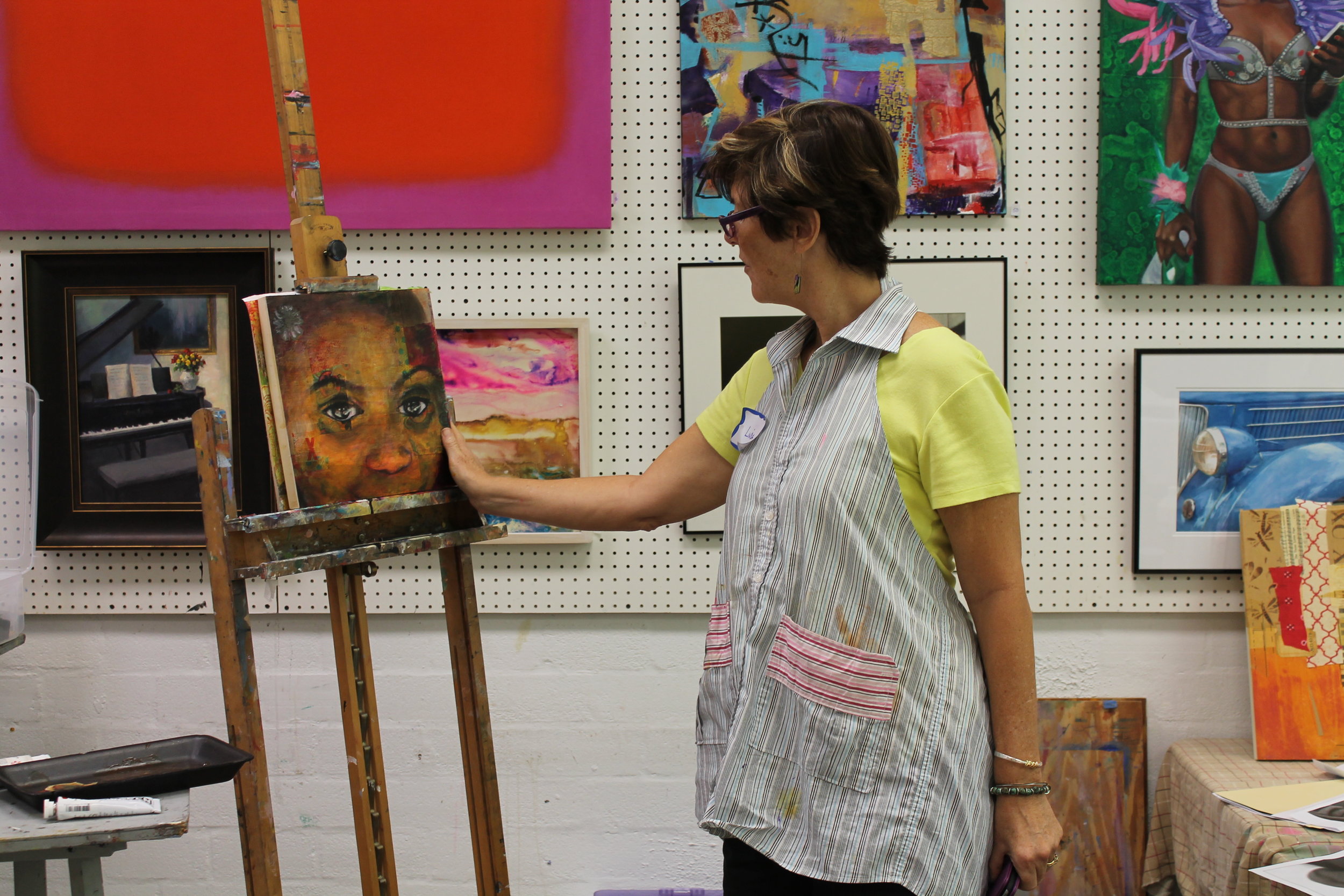In today’s rapidly evolving creative landscape, nurturing innovation and talent is paramount. Creative arts academies play a crucial role in cultivating the skills and vision required for success in various artistic disciplines. This article delves into the top creative arts academies worldwide, highlighting what sets them apart and why they are leaders in fostering artistic excellence. From comprehensive curricula to state-of-the-art facilities, these institutions offer unique programs that inspire and shape the next generation of artists. Join us as we explore the criteria for selecting a creative arts academy, discover renowned schools, and uncover the pathways to becoming part of these prestigious institutions.
Join gamesweed.com as we uncover the details of this topic.
1. Overview of Creative Arts Academies
Creative arts academies are institutions committed to cultivating and refining the artistic talents of individuals across a wide range of disciplines, including visual arts, performing arts, music, and design. Within these academies, students are provided with a structured setting conducive to honing their skills, exploring their creative potential, and receiving mentorship from experienced professionals. The focus extends beyond technical proficiency, encompassing the development of innovation, critical thinking, and artistic expression.
These academies boast a rich history, having nurtured some of the most influential artists in their respective fields. Offering a diverse array of programs and courses designed for all levels, from novices to seasoned professionals, they provide a comprehensive education. The curriculum encompasses a blend of theoretical knowledge, practical training, and real-world applications, ensuring graduates are well-prepared to excel in the competitive creative landscape. Fostering collaboration and interdisciplinary learning, creative arts academies cultivate a vibrant and supportive community where students can flourish both personally and professionally.

2. Criteria for Selecting a Creative Arts Academy
Choosing the right creative arts academy is crucial for aspiring artists. One key factor to consider is the academy’s reputation and history of success. This can provide valuable insights into the quality of education and training offered. Researching notable alumni and their achievements can shed light on the institution’s impact on students’ career paths.
Secondly, the comprehensiveness and quality of the programs offered are paramount. Prospective students should seek out academies that provide a wide range of courses, both general and specialized, catering to their individual interests and skill levels. Furthermore, the credentials and experience of the faculty are essential. Experienced instructors can offer invaluable mentorship and real-world knowledge.
Facilities and resources are paramount to a successful learning environment. Top-notch studios, workshops, and equipment can greatly enhance the educational experience. Furthermore, opportunities for exhibitions, performances, and industry connections provide valuable hands-on experience and networking opportunities.
Finally, taking into account the location, tuition fees, and accessible financial aid opportunities can contribute to a well-informed decision that aligns with individual and financial requirements.
3. Top-Ranked Creative Arts Academies Worldwide
Globally, several creative arts academies stand out for their exceptional quality and impact on the future of artistic expression. Among these, the Royal College of Art in London consistently ranks among the top institutions. Renowned for its diverse programs in art and design, it cultivates innovation and creative thinking. Its distinguished alumni include celebrated figures like David Hockney and Tracey Emin.
The Rhode Island School of Design (RISD) in the United States is another renowned institution known for its demanding curriculum and focus on both fine arts and design. By integrating liberal arts into its programs, RISD cultivates a comprehensive education, resulting in graduates who are both versatile and highly skilled.
The École des Beaux-Arts in Paris, a renowned institution in Europe, boasts a rich history and continues to shine as a beacon of artistic education. Its blend of classical tradition and contemporary methods draws students from every corner of the world. In contrast, the Berlin University of the Arts embraces a diverse range of disciplines, encompassing visual and performing arts, and is acclaimed for its interdisciplinary focus.
Nestled in Beijing, the Central Academy of Fine Arts stands as a leading institution in China, renowned for its commitment to both traditional Chinese art and contemporary practices. This academy, along with others like it, exemplifies the pinnacle of creative education, each making a distinct contribution to the global arts scene.

4. Unique Programs and Courses Offered
Creative arts academies provide a wide range of specialized programs and courses, tailored to meet the individual interests and talents of their students. The Royal College of Art in London, for instance, offers dedicated programs in fields like fashion, industrial design, and visual communication. These programs emphasize a harmonious blend of established techniques and modern innovation.
The Rhode Island School of Design (RISD) offers distinctive courses that integrate art and technology, such as Digital + Media and Nature-Culture-Sustainability Studies. These interdisciplinary programs encourage students to explore the intersections of art, science, and sustainability, preparing them for forward-thinking careers.
The École des Beaux-Arts in Paris features classical fine arts programs alongside contemporary art practices, including courses in sculpture, painting, and multimedia installations. Students benefit from the academy’s historical prestige while engaging with modern artistic movements.
Berlin University of the Arts stands out with its interdisciplinary approach, offering programs in visual arts, music, performing arts, and architecture. This broad spectrum allows for a rich exchange of ideas and collaborative projects.
In Asia, the Central Academy of Fine Arts in Beijing offers programs that combine traditional Chinese art forms with contemporary practices, such as ink painting and digital media, fostering a unique artistic perspective.

5. Success Stories and Notable Alumni
Top creative arts academies exert a profound influence on the global arts scene, as evidenced by the success stories and notable alumni they produce. The Royal College of Art in London, for instance, has nurtured the talents of influential artists such as David Hockney, whose groundbreaking contributions to pop art have indelibly shaped contemporary art. Tracey Emin, another distinguished graduate, is recognized for her provocative and deeply personal artwork, which has garnered international acclaim.
The Rhode Island School of Design (RISD) boasts a distinguished alumni roster, including graphic designer Tobias Frere-Jones, renowned for his creation of some of the most widely used typefaces, and Nicole Miller, a leading fashion designer celebrated for her innovative and sophisticated designs. These graduates serve as prime examples of RISD’s commitment to nurturing versatile and groundbreaking talent.
The École des Beaux-Arts in Paris is renowned for its illustrious alumni, including Edgar Degas, a pivotal figure in the Impressionist movement and a master of modern art. Degas’s enduring legacy continues to inspire artists globally.
Berlin University of the Arts has fostered the talents of individuals like filmmaker Wim Wenders, renowned for his significant contributions to contemporary cinema, and artist Georg Baselitz, whose groundbreaking approaches to painting have revolutionized traditional perspectives.
The Central Academy of Fine Arts in Beijing boasts among its graduates the internationally acclaimed artist Xu Bing. His work, which bridges cultural and artistic traditions, exemplifies the academy’s profound influence on contemporary art.

6. Facilities and Resources for Students
Top creative arts academies are distinguished by their exceptional facilities and resources, which play a crucial role in nurturing student talent and creativity. The Royal College of Art in London boasts state-of-the-art studios, workshops, and research centers, providing students with access to advanced tools and technologies in art and design.
The Rhode Island School of Design (RISD) offers extensive resources, including the RISD Museum, which houses an impressive collection of fine and decorative arts. Students benefit from well-equipped studios, fabrication labs, and digital media facilities that support a wide range of artistic practices.
The École des Beaux-Arts in Paris provides students with historic ateliers and modern studios, fostering a rich environment for artistic exploration. Its extensive library and archives offer valuable research materials, while regular exhibitions and events promote artistic exchange and public engagement.
Berlin University of the Arts features comprehensive facilities across its various disciplines, including dedicated spaces for visual arts, music, and performing arts. Its collaborative environment encourages interdisciplinary projects and innovation.
The Central Academy of Fine Arts in Beijing offers cutting-edge facilities, including specialized studios for traditional Chinese art forms and contemporary practices, alongside advanced digital media labs, ensuring students have the resources they need to excel in their artistic endeavors.

7. How to Apply and Admission Requirements
Applying to top creative arts academies involves several key steps and meeting specific admission requirements. Generally, prospective students need to prepare a comprehensive portfolio showcasing their best work, reflecting their skills, creativity, and potential. Portfolios are a critical component of the application process, providing admissions committees with insight into the applicant’s artistic abilities and vision.
In addition to a portfolio, applicants often need to submit a statement of purpose or personal essay. This document should articulate their artistic goals, reasons for choosing the particular academy, and how their experiences align with the program’s offerings. Some academies may also require letters of recommendation from teachers, mentors, or professionals in the field who can attest to the applicant’s talent and dedication.
For most institutions, an interview or audition may be part of the process, offering an opportunity for candidates to discuss their work and aspirations in person. Academic transcripts and standardized test scores might also be required, depending on the academy’s specific criteria.
Each academy has its own deadlines and application procedures, so it’s essential for applicants to thoroughly research and adhere to the guidelines provided by each institution. Early preparation and attention to detail can significantly enhance the chances of gaining admission to these prestigious programs.

Creative arts academies play a pivotal role in shaping the future of the arts by providing top-notch education, resources, and opportunities for emerging artists. By understanding the unique programs, success stories, and facilities offered by these institutions, prospective students can make informed decisions about their education. Whether through renowned programs or state-of-the-art facilities, these academies nurture creativity and talent, preparing graduates for successful careers in the arts. Choosing the right academy is a crucial step toward achieving one’s artistic ambitions and contributing to the global arts community.
gamesweed.com